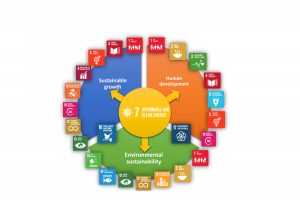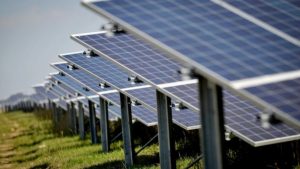*Regulation holds hope of 89 million unconnected people
Operators in Nigeria’s renewable energy industry are optimistic the recent decision of the Nigerian Electricity Regulatory Commission (NERC) to sign into law a regulation to govern investments in mini grid electricity generation would embolden investors’ commitment to Nigeria’s off grid power sector.
According to the operators, about 89 million of Nigeria’s citizens that are presently not connected to any form of grid electricity could benefit from a successful implementation of the regulation.
In their advocacy notes, and press statements shared with OGN, the operators believe NERC’s decision which came after series of consultations on the regulation was appropriate, thus indicating its wide acceptance.
First of its kind, bold push for DRE investments – Power for All
Backing the delivery of the regulation, Power for All, a global coalition of companies and civil society organisations campaigning to scale distributed renewable energy, lauded its passage by the NERC.
The coalition said though it is the country’s first, it however contains inputs made by industry stakeholders during a comprehensive consultation on it, and should from its implementation boost investors’ appetites to invest in Nigeria’s DRE sector.
“Mini-grids are electricity supply systems with their own power generation capacity, mostly from renewable energy, supplying more than one customer and can operate either in isolation from or connected to an existing distribution network.
“The regulations, which are the country’s first for mini-grids, were the result of engagement between NERC and industry stakeholders and were adopted on May 5, 2017 and released by NERC on June 5, 2017. They cover the licensing, tariff pricing and technical standards for all mini-grids from 0kW to 1MW,” said Ify Malo, the Nigeria Country Manager for Power for All.
Malo, further explained: “The regulations will go a long way to boosting investment in renewable energy through mini-grids and providing electricity to consumers in underserved and unserved areas.”
In particular, she added, “the cost-reflective tariffs and clearly defined procedures for obtaining permits will encourage solar mini-grid developers.
“The regulations also define rights for communities being connected to mini-grids in order to protect them, which will encourage communities to install mini-grids for power supply.”
According to Malo, Power for All has been instrumental to the establishment of the Renewable Energy Association of Nigeria (REAN), to enable the private sector be a part of renewable energy policy formulation. It has also supported the Rural Electrification Agency (REA) to integrate DRE into its work and facilitating action-oriented collaborations between stakeholders working to build sustainable DRE markets and increase energy access.
Regulation gives backing to our N40bn investment plan – Orajaka
Similarly, the founder and CEO of Nigerian mini grid developer, Green Village Energy (GVE), Ifeanyi Orajaka, described the regulation as the tonic GVE was expecting to drive its commitments to the country’s DRE sector.
Orajaka, explained in a note to OGN that while GVE has invested more than a billion naira in Nigeria’s DRE, it had looked forward to the law to lock in its medium term investment plan within which it would provide clean and stable electricity to about two per cent of Nigeria’s population.
“The recent signing of the mini-grid regulation into law marks the beginning of the much needed disruption that will eventually ensure that all Nigerians irrespective of region of abode will have access to stable and reliable electricity,” said Orajaka.
He further stated: “For us in GVE, it affirms our conviction and aspirations in 2009 when we conceived and pioneered the technology as undergraduate students of Federal University of Technology, Owerri.
“This bold step by the government will go a long way in attracting private investment that will solve Nigeria’s electricity crises. In collaboration with our numerous partners, GVE has till date invested more than a billion naira in mini-grid projects scattered across the country. This is part of our medium term targets of investing over forty N40 billion towards providing clean, stable, reliable and affordable electricity to more than 2% of Nigeria’s population.”
Hospitals, schools, rural communities are ultimate beneficiaries – Adeyemo
Similarly, in his comments in the statement shared with OGN by Power for All, the CEO of Arnergy, a Lagos-based renewable energy and solar mini grid developer, Femi Adeyemo, described the regulation as being extremely beneficial to hospitals; rural communities; and schools across the country.
Adeyemo, also noted that the government may have by its signing of the regulation, granted some priority considerations to the DRE sector as a viable backer of its energy mix agenda.
“The new mini-grid regulation is an indication that the Nigerian government is thinking decentralized renewables in her electrification plan energy mix,” he said.
“Via the new regulations, adoption of off-grid renewable energy in Nigeria is poised to increase localized, rugged, reliable, cost-effective and easy-to-deploy electricity to hospitals, schools, and rural communities enhancing overall development of the country,” Adeyemo added.





